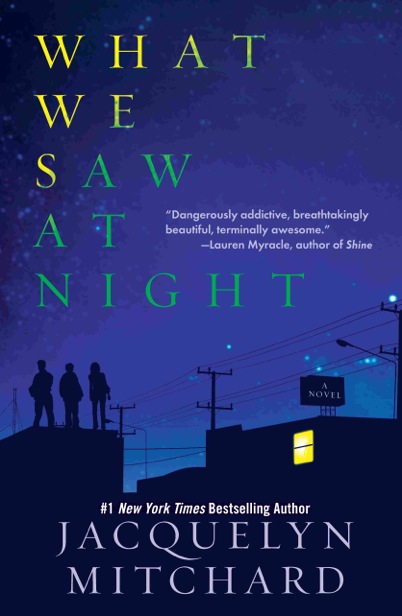THE SCENT OF DARKNESS focuses on 18 year-old
Evangeline, the product of a lonely upbringing who is used to being a
background player. Summers spent visiting her beloved grandmother Louisa, an
aromata, in a tiny upstate New York town have given Eva an open mind towards,
if not quite an acceptance of, magic (be it tarot cards, perfumed elixirs or
prophesies).
When Eva inherits her grandmother’s house and finally gives
herself permission to explore the one room that has always been off-limits, she
finds a tiny bottle of perfume attached to a warning note. With one drop of the
contents, Eva transforms. The scent becomes a part of her and makes her
instantly irresistible to all she encounters.
Eva finally lands her crush, medical student Gabriel, but
he’s not the only one she attracts. When the attention of others becomes too
much, she accepts Gabriel’s offer to move to New Orleans with him, partly in
the hopes that the dark city’s mysterious aromas will be strong enough to cloak
her own. New Orleans has its own ideas and when she encounters off-kilter painter Michael, Eva has to decide whether to embrace or denounce her
powers. Meanwhile, she’s plagued
by doubts about whether the two men she is torn between can even see the real
her beneath the scent she exudes.
My favorite character in this novel was New Orleans; my second being the small town in
upstate New York which holds the beginning of the story. The settings Berwin has chosen for the
story and the descriptions of both locations enveloped me in an atmosphere as
distinctly as a scent would have. Earlier this year, I read April Henry’s GIRL,
STOLEN and loved how Henry was able to offer a first-person narrative from the
perspective of a blind girl. Not
being permitted any visual descriptions, I was fascinated at how Henry told a
story using sounds, smells, and the sense of touch to paint a clear picture of
the action. I expected SCENT OF
DARKNESS to use aroma in a similar manner, but Eva is not an aromatist like her
grandmother, so she doesn’t “think in smells” the way the main character in
Patrick Suskind’s PERFUME: THE STORY OF A MURDERED does. However, Eva as a
narrator, is constantly making small,
quirky observations that paint a picture of the character she’s describing (even
as they make her sound MUCH older than eighteen.)
For example, she describes her mother:
“From a certain distance, she reminded me of a slot machine
with wrinkles that went straight up and down her cheeks deep enough to slip
quarters into… She lived her life as if she were on a moving sidewalk in an
airport.”
In another scene she describes her young teenage neighbor as
“thinly elegant as only very young teenagers can be… The length and wildness of
his hair made him look motherless.”
And the city of New Orleans gets the most loving
descriptions of all. In fact,
Berwin paints the weird and wonderful gothic side of the voodoo city in a
similar tone to the way Savannah is portrayed in MIDNIGHT IN THE GARDEN OF GOOD
AND EVIL and I thought it was the strongest aspect of the book. I felt like I
was getting sucked under the slow, lazy spell of the city as I read.
However, as much life as Berwin breathed into the non-living
characters, I felt oddly disconnected from the flesh and blood (and scent)
characters. I never sympathized
with Eva the way I’d hoped, although I felt that some of the disconnect might
have been intentional on the part of the author. As the story is the journey of
Eva’s self-discovery, it would make sense that she would be an unreliable
narrator. But I also felt the same
emotional distance from the two main love interests, medical student Gabriel
and painter Michael. They were a
bit one-dimensional- one was all good, the other more clearly evil, but even
beyond that, I didn’t feel the connection in either’s relationship with Eva.
This made it difficult to root for Eva to choose one versus the other. I was
also frustrated that there were instances people were completely drawn to touch (and even kiss) Eva outside of their own control, but other characters- from a
waitress to a truck driver- seemed very matter-of-fact about, or oblivious to,
her scent. It came across as a great plot device when convenient to the story,
but also disappeared when needed. As much as the main characters didn't come to life for me, the side characters, from
a teenage tarot reader to an aroma to a medicine woman, were so quirky that
they were instantly engaging.
Overall, the writing itself is lovely and paints a moody,
atmospheric tale that dragged me straight out chilly Boston and plopped me into
the steamy gothic bayou. I just wish the characters had come to life for me as
much as the setting did.
Have you read any books lately that have sucked you into a particular setting?
*Full disclosure: I was provided an advance copy of this book from Random House for review purposes.



















